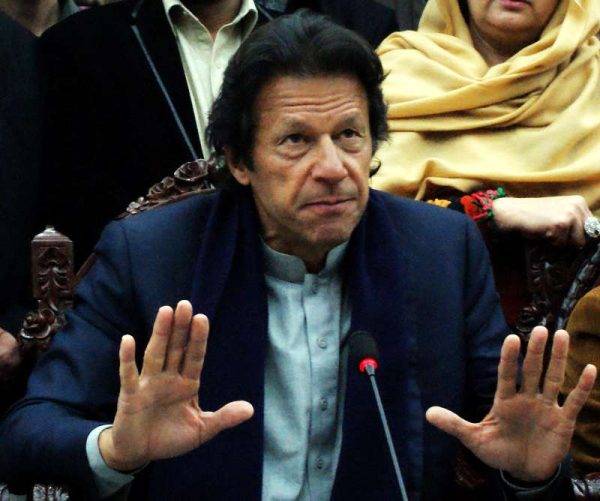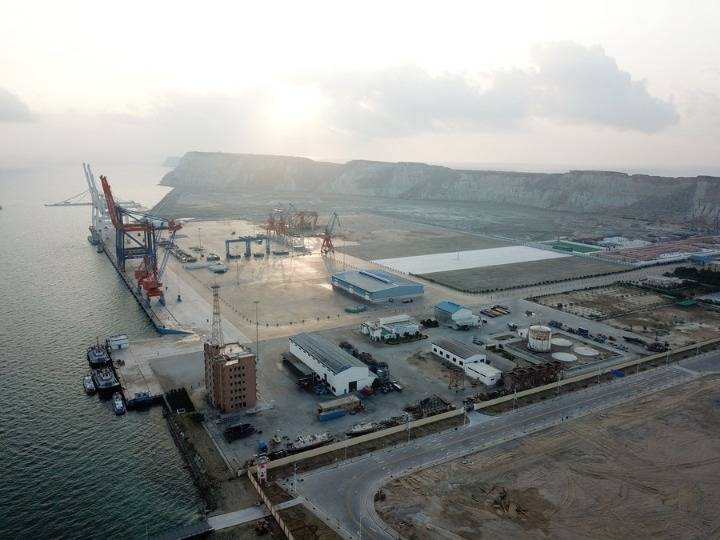The removal of a retired army general also reinforced China’s bid to control and micro-manage the infrastructural projects by installing its acolyte…reports Asian Lite News
The swift dismissal of Lieutenant General (retd) Asim Saleem Bajwa as Chief of the China-Pakistan Economic Corridor (CPEC) at Chinas behest puts the issue of corruption and lack of transparency in the Belt and Road projects in Pakistan in the spotlight once again.
The removal of a retired army general also reinforced China’s bid to control and micro-manage the infrastructural projects by installing its acolyte, Khalid Mansoor, a civilian energy expert, to push the stalled projects forward.
China was unhappy with the pace of the execution of the CPEC projects and had hoped Bajwa, who belonged to the ‘deep state’ of Pakistan would be able to expedite the projects. However, it was disappointed with the incomplete projects, lapses in security of Chinese personnel working in Pakistan, particularly the latest incident that took place in the restive Khyber Pakhtunkhwa province on 14 July, killing 13 people, including nine Chinese nationals. Moreover, many Chinese nationals working for CPEC projects across Pakistan have been attacked recently.
China has now decided to take control of things directly in the country, making Pakistan seem like a mere puppet in its hands.

Mansoor, the new Chief of the CPEC Authority, has more than 32 years of experience in the energy and petrochemical sectors in leading roles for mega-size projects’ development, execution, management and operations, the Dawn newspaper reported.
The CPEC, which connects Gwadar Port in Pakistan’s Balochistan with China’s Xinjiang province, is the flagship project of China’s ambitious multi-billion dollar Belt and Road Initiative (BRI).
Lt Gen Bajwa had been Chairman of the CPEC authority since November 2019 and had developed a good working relationship with China. Still, Beijing wanted someone in the job who was more familiar with Chinese companies and working culture. “Khalid Mansoor, who has worked with many Chinese companies including directly leading CPEC projects, fits the bill as China’s favourite man for the job,” an official said, Nikkei Asia reported.
The Pakistani media linked the change of CPEC Chief with Beijing’s displeasure at the slow progress of BRI projects in the country. Since Bajwa assumed office as CPEC Authority Chairman, there had been no meetings of the Joint Coordination Committee, the apex body jointly chaired by Pakistan and China to make decisions about CPEC projects. With the new CPEC Head in office, the 10th JCC is expected to be convened soon.

Analysts believe this move is another example of China getting the upper hand in the CPEC and dictating terms to Pakistan. The whole CPEC venture has come under closer scrutiny from China following last month’s incident when nine Chinese engineers were killed in a bomb attack on a convoy transporting Chinese personnel to the Dasu Hydropower project in Pakistan’s Kohistan district.
Moreover, the security situation in Afghanistan, which borders Pakistan and China, is fast deteriorating in the wake of the Taliban taking over control of the country even before complete US military withdrawal. The change of Pakistan’s top CPEC man is possibly meant to restore the confidence of the Chinese side on the infrastructural projects.
However, Pakistan’s business community is not happy with the replacement of Bajwa with Mansoor. Certain groups within the corporates are opposed to Mansoor’s appointment. These groups hail Bajwa for doing a great job with CPEC who had developed a strong grip on the matter and removing him from the job is not in the interests of BRI projects in the country. They termed the decision to appoint Mansoor as being made without taking any long-term political or economic considerations into account.

